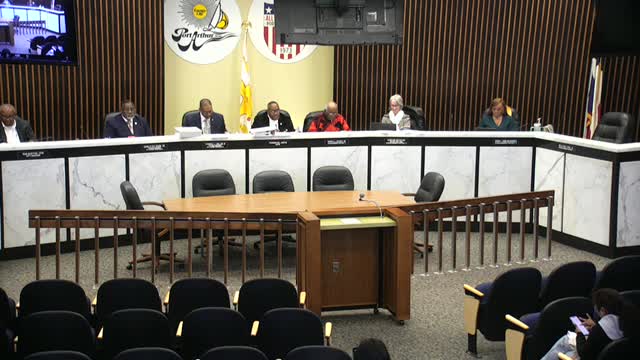Council member to present data on stalled streets program after council questions delivery
Get AI-powered insights, summaries, and transcripts
Subscribe
Summary
Council members debated the status of a multi‑year streets program funded by $50 million in certificates of obligation and directed a future presentation comparing the adopted program to current execution.
Council members pressed for clarity and accountability on the city’s streets program, saying the program has not been executed as originally adopted and that funding set aside for street repair is not being fully spent.
Council member Dusett told the council he would prepare a presentation showing how the 2017 adopted capital improvement street plan was intended to operate and how current practice differs. He reminded the council that in late 2019 the city authorized $50 million in certificates of obligation to fund five years of street repairs at $10 million per year.
Members discussed several factors that slowed repairs, including COVID‑19, supply constraints and the loss of simultaneous contractor and city crews that once accelerated work. Dusett said the original plan used engineers and contractors working in parallel with city forces; he said current practice relies more on city crews and results in slower progress and under‑utilized funding.
Council members said they wanted the forthcoming presentation to show a side‑by‑side comparison of the adopted program and current implementation, including where funding has not been applied as expected. Council members Frank and others said they recognize streets have been repaired but sought the comparison to identify gaps and return the program to the intended pace and accountability.
Dusett framed the presentation as fact‑based rather than accusatory; he said it will include references to prior council meetings (Feb. 14, 2017; April 25, 2017; March 27, 2018; Dec. 19, 2019) where the program was discussed and the January 27, 2020 vote authorizing $10 million per year. He said the analysis will focus on execution and use of funds rather than personnel blame.
Council asked staff to make the presentation at a future date and to provide data on streets completed, funds spent, and areas prioritized. Council members emphasized that transparency on project selection and accountability were the goal.
